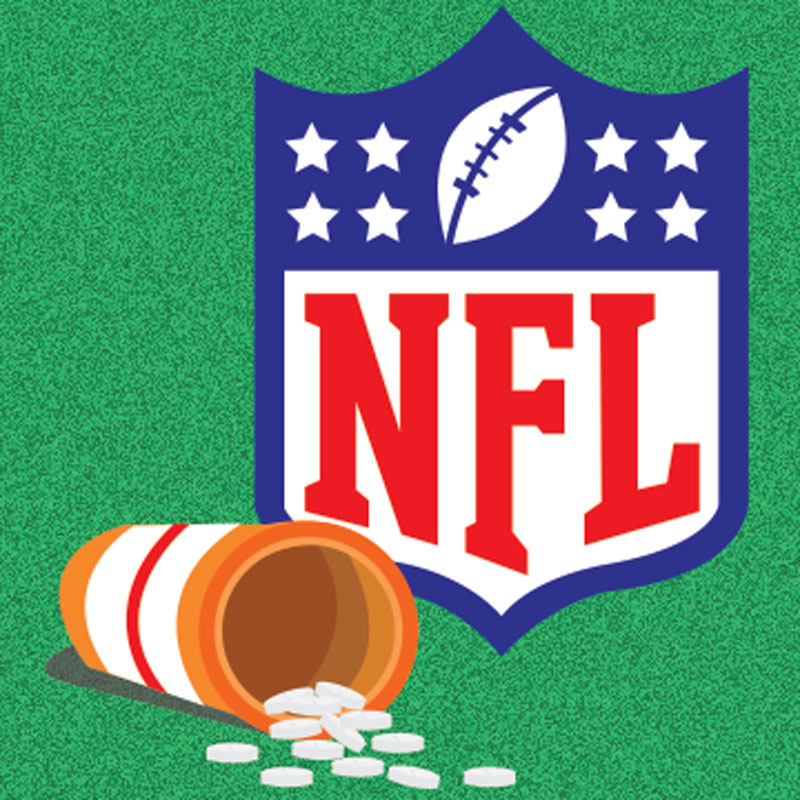Surprise DEA investigation launched against NFL

The National Football League (NFL) is under investigation by the Drug Enforcement Administration (DEA) for the inappropriate distribution of painkillers by NFL teams.
Surprise visits to NFL locker rooms, which began Nov. 15, were spurred by reports of widespread abuse of painkillers that were included in a class-action lawsuit, filed in May 2013, by more than 1,300 retired NFL players. The suit, which is being heard in federal courts in California, claims that NFL team doctors routinely dispensed Percocet, Toradol, Novacain and other drugs to mask injuries both before and after games. The drugs are designed to give extra energy to the players before the game and relieve pain afterward.
The former players contend that the league failed to warn them of the consequences of taking the drugs, which can prevent the feeling of injury and therefore make it harder for players to recognize when they have suffered high-risk injuries such as concussions. Dozens of former players said they suffered long-term effects including anxiety, depression, short-term memory loss, severe headaches, sleeping problems and dizziness.
So, without prior notice, DEA agents were on site for the slate of games that were played Nov. 15 to approach the medical staffs of the visiting teams and ensure and enforce all laws pertaining to the controlled substances are being followed as set by the Controlled Substances Act (CSA), which prohibits anyone but a physician or nurse practitioner from distributing prescription drugs, and they must meet proper regulations for acquiring, storing, labeling and transporting them. It is illegal for team trainers to dispense or even handle controlled substances in any way.
“Our role is law enforcement, and we have the regulatory authority to make sure anyone who has a license operates within the law,” said Rusty Payne, a spokesman for the DEA. “The DEA has a responsibility under the CSA to ensure that registrants who possess, prescribe and dispense substances are following the law.”
The concern is that teams are distributing painkillers without prescriptions, which is why the DEA officials are asking teams for proof and/or documentation for prescriptions. The DEA officials are checking that proper records are being kept of the distribution of painkillers by doctors and trainers and also investigating whether those medical teams are registered to prescribe and administer controlled substances in the state in which their team is playing. The DEA agents also requested permission to inspect the medical bags for prescription drugs.
“Our teams cooperated with the DEA today, and we have no information to indicate that irregularities were found,” said Brian McCarthy, an NFL spokesman. “No one’s going away in handcuffs today, and no search warrants were issued and no one was arrested.”
Toradol and other painkillers have been routinely distributed in mainstream sports, including baseball, basketball and hockey, and their presence in locker rooms has been surrounded by controversy among players and media alike. However, their use in the NFL is particularly controversial because football’s risk and rate of injury is higher than the other mainstream sports, and painkillers taken as prophylactics before games can mask serious injuries, including concussions.
The DEA is committed to investigate these potential charges, as they enforce the CSA. However, it is unclear what the next step will be should the DEA determine laws were indeed being broken.
The civil suit by former NFL players was filed in a federal court in May 2013, and while this investigation has been going on quietly for months, Nov. 15 marked the first time DEA agents were actively pursuing information on-site at NFL games.

